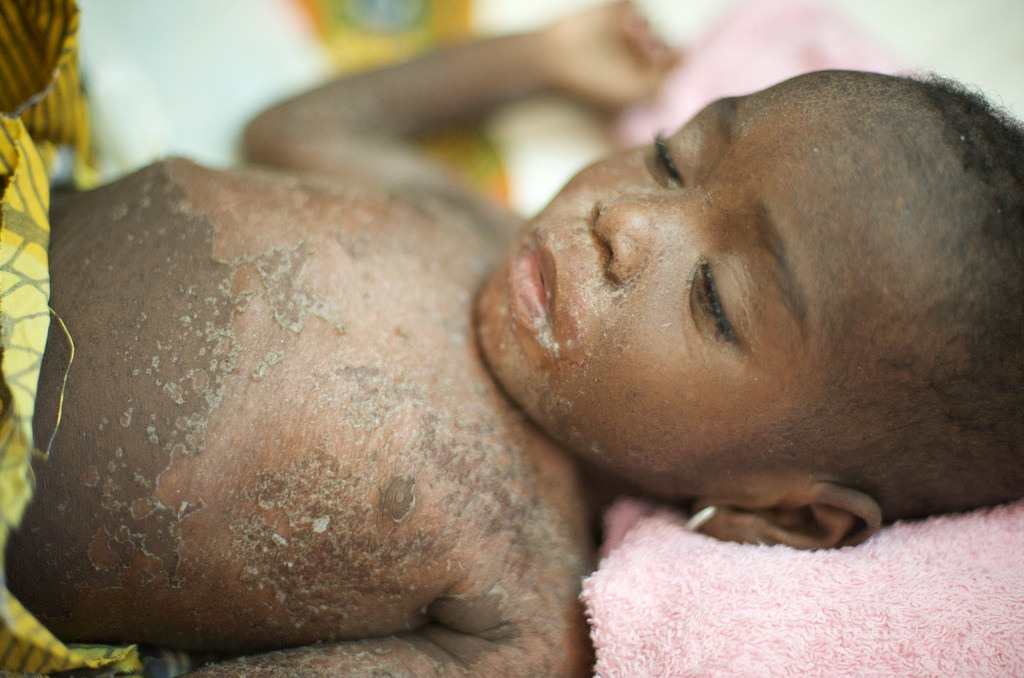Global Measles Cases Surge by 20% in 2023, with Over 107,000 Deaths: WHO and CDC
This alarming increase in measles cases is primarily driven by significant gaps in global immunization coverage, underscoring the urgent need for increased vaccination efforts worldwide.

Global measles cases have surged by 20% in 2023, with an estimated 10.3 million cases reported, according to new data from the World Health Organization (WHO) and the U.S. Centers for Disease Control and Prevention (CDC). This alarming increase in measles cases is primarily driven by significant gaps in global immunization coverage, underscoring the urgent need for increased vaccination efforts worldwide.
Measles, a highly contagious viral disease, can be prevented with two doses of the measles vaccine. However, more than 22 million children missed their first dose of the vaccine in 2023, with 83% of children receiving their first dose but only 74% receiving the second. Experts agree that a coverage rate of 95% or higher for both doses of the vaccine is necessary to prevent outbreaks and protect communities from this potentially deadly disease.
Dr. Tedros Adhanom Ghebreyesus, WHO Director-General, emphasized the importance of vaccines in saving lives, saying, "Measles vaccine has saved more lives than any other vaccine in the past 50 years. To save even more lives and stop this deadly virus from harming the most vulnerable, we must invest in immunization for every person, no matter where they live."
In line with these concerns, CDC Director Mandy Cohen warned, “The number of measles infections are rising around the globe, endangering lives and health. The measles vaccine is our best protection against the virus, and we must continue to invest in efforts to increase access.”
The consequences of inadequate vaccination coverage have been severe. In 2023, 57 countries experienced large or disruptive measles outbreaks, a nearly 60% increase from the previous year when 36 countries were affected. These outbreaks impacted all regions except the Americas. The African, Eastern Mediterranean, European, South-East Asia, and Western Pacific regions all witnessed substantial increases in cases, with the African region accounting for nearly half of all large or disruptive outbreaks.
The rising number of cases has also led to a significant death toll. In 2023, an estimated 107,500 people—mostly children under the age of five—died from measles, though this figure represents an 8% decrease from the previous year. This reduction is largely attributed to the fact that the surge in cases occurred in countries and regions where access to nutrition and healthcare services is better, reducing the likelihood of fatal outcomes. Nonetheless, the number of preventable deaths remains tragically high.
Even those who survive measles can face serious, long-term health complications. Measles can lead to conditions such as blindness, pneumonia, and encephalitis (brain swelling, which can result in permanent brain damage). Infants and young children are particularly vulnerable to these severe complications, which can have lifelong effects.
The global goal of eliminating measles, as outlined in the Immunization Agenda 2030, is now at risk. By the end of 2023, 82 countries had achieved or maintained measles elimination. Recently, Brazil was reverified as measles-free, making the WHO Americas region once again free of endemic measles. However, apart from the African Region, at least one country in every WHO region has successfully eliminated the disease.
Given the rising number of cases and outbreaks, there is an urgent need for focused, targeted vaccination efforts, especially in the African and Eastern Mediterranean regions, as well as in fragile, conflict-affected, and vulnerable settings. Countries must prioritize high-performing routine immunization programs and deliver high-quality, high-coverage vaccination campaigns when regular programs fall short.
To combat the rising cases, strengthening disease surveillance is critical. The WHO's Global Measles Rubella Laboratory Network (GMRLN) plays a key role in this effort, helping optimize immunization programs and enabling rapid detection and response to measles outbreaks to mitigate their impact.
While the WHO and CDC continue to work with governments and global health partners to ramp up immunization efforts, they emphasize that closing gaps in vaccine coverage is the most effective way to prevent further outbreaks and avoid unnecessary deaths. The continued rise of measles underscores the importance of ensuring that every child receives the full recommended vaccine schedule to protect not only individual health but also global public health.
As the fight against measles continues, international cooperation and sustained investment in immunization systems are essential to halt the spread of this preventable disease and achieve global measles elimination goals.










